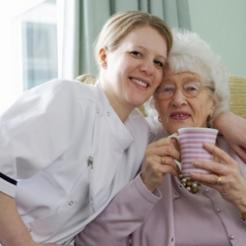A report released today by Nesta is calling for systematic innovation in caring for older people, stressing that improving current measures may be less important than questioning the core strategy behind them.
Five Hours a Day: Systematic Innovation for an Ageing Population considers ageing “a dynamic and evolving issue” and argues that we need to move beyond what it calls “chronologism” – passing judgement based on age, rather than skills and experience.
The report is named after the concept that the life expectancy of the UK’s population is rising by around five hours a day, or nearly three months each year, which it says “is set to transform everything from employment to welfare and the norms of family life”.
It recognises that this shift is a result of factors such as better healthcare and care environments, but argues that consequently how this older society is seen needs to change.
Encouraging elderly volunteering
For instance older people can offer a great deal in terms of volunteering, which is often not reflected.
The report highlights schemes like the USA’s Experience Corps which promote volunteering by the elderly as a ‘civic duty’, and welcomes how such ideas are becoming popular in Europe too, such as the UK’s Men in Sheds projects, some of which are organised by Age UK.
So Nesta wishes to shift the debate from retrofitting traditional approaches to a systematic re-think of policy, products and services to address these changes, considering the implications longer lives have on how people live and work.
“Although innovations across science and technology over the past century have radically increased life expectancy, many of our social institutions like social care feel increasingly archaic and out-of-step,” the report says. It argues that “by focusing on important areas such as social care funding, quality of care in hospitals and care homes and existing older people’s services, questions about whether the underlying approach is the best one are being left unexamined”.
Key challenges include the need to converge the social with the medical by supporting self-management and peer support; the need to encourage older people to re-skill and plan for the future and the need to deliver new employment models that allow for older people to continue being productive.
The full report can be read on the Nesta website here.

| Want access to all civilsociety.co.uk content?Subscribers gain access to all expert advice, analysis, surveys, special reports and the full archive of content from as little as £43.20 per year. Find out more...
|









